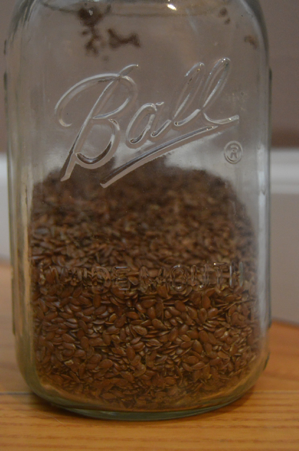Fats: The Good, The Bad and The Inbetween
March 2, 2018
When trying to lose weight, a common assumption is made that cutting all fat from a diet will have positive benefits. However, that’s not always the best option.
Some fats are absolutely vital, others have positive benefits, and the rest will slowly create health complications.
Before diving into any new, trendy diet, consider the fact that certain types of fats are actually helpful to some bodily functions. Consuming foods containing polyunsaturated fat is absolutely necessary for many aspects because bodies do not naturally produce them. Monounsaturated fats can also have positive impacts when eaten in moderation. Saturated fats, though aren’t as bad as trans fat, can build up to create long term issues.
According to Harvard University, all the fats have a similar chemical structure made up of a chain of carbon atoms bonded to hydrogen atoms. The differences lie in the length and shape of the carbon chain and the number of hydrogen atoms bonded to each carbon atom.
Monounsaturated fats
Monounsaturated fats are one of the four fats that are helpful in a balanced diet. Harvard describes that monounsaturated fats have a single carbon-to-carbon double bond. The result is that it has two fewer hydrogen atoms than a saturated fat and a bend at the double bond.
The common food items that should be consumed in moderation include nuts, such as cashews, almonds, peanuts, and more. In addition to most nuts, oils such as olive oil and peanut oil are considered monounsaturated fats. The popular fruit, avocado, and natural peanut butter also fall under this category.
Polyunsaturated fats
This type of fat falls under the useful, necessary nutrients. Polyunsaturated fats are needed because they are unable to be made by the body. This good fat builds cell membrane along with the covering of the nerves. Polyunsaturated fats serve their purpose by assisting in the rule of blood clotting, muscle movement, and inflammation.
Similar to monounsaturated fats, polyunsaturated fats have two or more carbon bonds in its chain. Harvard continues to go into more depth about two types of polyunsaturated fat; omega-3 fatty acids and omega-6 fatty acids, both being beneficial.
According to the Office of Dietary Supplements, a part of the federal government’s National Institutes of Health, some common foods are high in omega-3 fats. These include certain seafood, like salmon and tuna, nuts and seeds such as flaxseeds and walnuts, plant oils, and other fortified substances.
Though it is rare to have a deficiency of polyunsaturated fats as a lack of it can lead to skin complications such as rashes and dry skin.

Saturated Fats
Saturated fats are not the worst kind of fat, however should still be consumed sparingly. Fitday explains that saturated fat has the ability to raise the bad cholesterol levels, and increase the risk for diseases, such as heart disease, the number one cause for death in America.
Fitday also suggests no more than 16 grams of saturated fat a day, when based off of a 2,000 calorie diet, give or take depending on the circumstances.
One of the easiest ways to reduce intake of saturated fat is simply by buying fat free or low fat dairy products. On top of a reduced fat options, consume more lean protein instead of high fat meat, and use various oils such as olive oil, walnut oil, or canola oil.
Trans Fats
Similar to saturated fats, trans fats increase bad cholesterol. Making them even worse, they decrease the amounts of good cholesterol. Harvard says that trans fats also create inflammation, leading to heart disease, diabetes, strokes, and other dangerous health conditions.
Trans fat is found in hydrogenated vegetable oils. Fried foods are one of the most common places to find trans fat, for example, donuts or french fries. Also, processed snack foods, such as crackers or chips contain trans fat.
When changing up a diet, there are many precautions to take. Everyone’s body works differently and therefor calls for different nutrients. Ensure that enough of necessary fats are included in your diet, and others are consumed in moderation.







